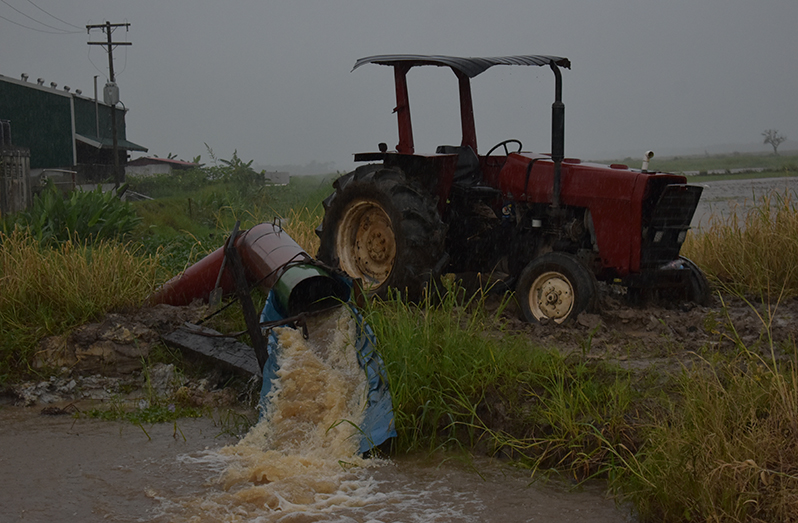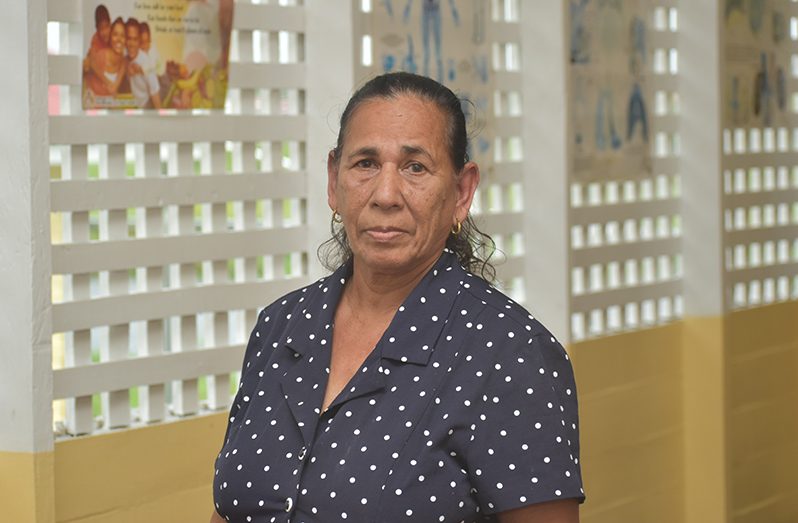NONE of Manuwatie Panday’s six children was born at a hospital. The older folks in the Mahaicony River, known as the village nannies, had come to her aid each time she was in labour, especially as she did not have her mother around to help. Although she found it an amazing experience though, to this day, she still remembers the pain of labour.
But the village nannies, who operated on a payment arrangement, made things easier. “The nannies were so gentle and would cuddle you as if they were your own parents. They would cook and wash for you until nine days,” she recalled in an interview with Pepperpot Magazine.
These were not trained nurses but persons who were experienced. “They would come to your home and work for you. Even though none of them was trained, no one ever died in their care. You would pay them, and they would do this service for you.”

The nannies came early in the morning and left in the afternoon. During the day, they’d help to cook, wash, pick up and fold the clothes, and then leave to do the same again the following day. The arrangement worked well, according to Panday.
Arranged Marriage
When she heard her elders discussing her marriage to Drishtanand Panday (now deceased), who was one year her senior in school, she thought to herself, ‘anyone but him.’ They fought in school and he was not very nice to her.
“But one day, my father told me that he didn’t think he had long more to live and that he wanted to marry me before he passed away. I would cry my heart out when he would tell me those things,” she recalled. So at age 20, she was married to Mr. Panday.
“Three months before, as we were preparing the wedding, my father said he felt he was going to get a stroke in his head. I got married on that Sunday and, by the Tuesday, he got a swing head, had a stroke and before he reached to the hospital, he died,” Panday shared. This was just two days after her wedding on July 21, 1970.
Although hesitant at first, she is happy that she went along with her father’s choice for her as Mr. Panday turned out to be a wonderful and supportive husband who was anything but lazy. He was always helpful around the home, she said.
Driving the Tractor
Now 72 years old, Panday still drives the tractor in the backdam as she aids her sons in their work of farming. Born and raised in a family of farmers, she learned from her father how to drive the tractor when she was still very young.
A resident of Water Dog Creek, on the left bank of the Mahaicony River, she reflected on how she’d go with her father in the backdam to mind the cows. That’s where she learned everything about farming. “My husband and I did rice farming for a living. He died four years now, but I still go in the backdam with my sons to help.”

“I would drive up the tractor and go to where my sons would end up while they would work the spray cans. I would have to look to see when they would raise their hand for me to stop,” she explained about the role she plays in the backdam.
Panday attended Karamat Canadian Mission School, which is now Karamat Primary School. One of the oldest residents in the community at the moment, she couldn’t share exactly how Mora Point got its name, but she knows for sure that Water Dog Creek was named after the many waterdogs that so often come up on land when the water in the river is high.
“I asked my father why the other side of the river bank has a different name to where we lived and he said there was a big Mora tree near the health centre, along with a few others in the community. So the place was named after that big tree. And there [were] a lot of waterdogs when the flood come; you would see them playing. Recently when the flood was there, you would see them come up on the land biting the fish they catch,” she shared.
According to her, the community had a lot more people back in the day and so a lot of the trees had to be cut down to help them construct their landings.
Over the years, she couldn’t help but notice the many changes that her community has seen. “We were coming with canoe; only one outboard was available to take the children to school. Now we have schools, health centre, and police outpost.”



.jpg)









